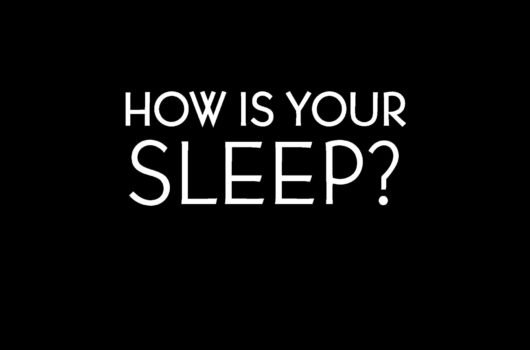Sleep Awareness

Yikes! I overslept and missed some of the most important days of March… March 11th was Napping Day and March 15th was World Sleep Day. But for those who love their sleep, have no fear – you can celebrate these days all year long! (Hooray!) Perhaps this will be the perfect excuse to hit the bed a little earlier tonight (and every night), or the jumpstart you need to start improving your sleep.
Many individuals may experience one or more of these symptoms which can impact their sleep quality, including excessive daytime sleepiness, trouble falling asleep or staying asleep, snoring or episodes of stopped breathing while sleeping, or an urge to move your legs at rest or uncomfortable feeling in legs at night. Some of these symptoms may translate into a sleep disorder, such as insomnia, sleep apnea, restless leg syndrome, narcolepsy and sleepwalking.
Poor sleep quality and sleep deprivation can affect many things, in addition to just feeling groggy and sluggish. Some may feel hungrier when tired, hoping a snack will give a needed energy boost. Others may make poor, unsound decisions or lose focus. While coffee and caffeine may give you a temporary fix of energy, it can’t fix other issues associated with sleep deprivation, such as weight gain, high blood pressure, increased risk of chronic diseases and depression. It may also affect your productivity at work and ability to drive…
As someone who suffers from a sleep disorder, having good quality sleep is crucial for me. Without it, I’m crankier, less productive, get more headaches and increases my likelihood of migraines. Growing up my parents thought being sleepy was normal and attributed it to school, stress and being car sick (because I would fall asleep in the car EVERY time). However, I didn’t outgrow this sleeping spell even after graduating college and had a regular work schedule. I caught myself at work starting to nod off during an education appointment with a patient. I was still talking (and I’m pretty sure I was coherent) but my brain started to nod off. Who knew I could fall asleep while talking? This wasn’t the only reason for me to see the sleep doctor – I already had a number of times where I’d started nodding off while on my commutes both directions. Every method known to keep awake while driving I’ve tried – slapping my face, drinking water, snacking, chewing gum, windows open, and cranking up the music. Nothing worked, even if I slept well the night before.
Thanks to my sleep medicine doctor, my life has significantly improved. I finally feel more normal and have more energy to last the day. My driving is much safer too!
While I can go on and on about how important sleep is, here are some interesting facts about catching the zzz’s!
- How sleep promotes weight loss:
- REM sleep is when your metabolism is at its highest and fastest
- Deep sleep is when human growth hormone is released and tells the body how to break down fat into energy
- Poor sleep (<6 hours) can lead to:
- Poor blood circulation which causes wrinkles, thin hair, puffy eyes, dark circles and hair loss – yikes!
- Increase in insulin (the hormone that regulates blood sugar) and cortisol (stress hormone) production, which increases calories stored as fat, especially in the abdomen.
- Disrupted and short sleeping periods can also increase these 2 hormones.
- Increase in appetite due to increasing levels of ghrelin (hunger hormone) and decreasing levels of leptin (the satiety/fullness hormone).
- When sleep deprived, a person is more likely consume an extra 221 calories/day than when they are well-rested, which adds up to an extra 1500 calories per week.
- Extra calories were “thought to help cover energy cost of staying awake longer “.
- The need for serotonin (“happy” hormone) increases with fatigue, so your body will naturally start craving fat, sweets and starchy foods.
- Since your brain’s primary fuel is glucose which comes from carbohydrates, your best source for fuel will come from complex
- Complex carbohydrates contain fiber which helps to slowly release energy and avoid the infamous sugar high slump.
- 40% of US adults sleep less than 7 hours/night (strongly linked to increase risk of developing type 2 diabetes and metabolic syndrome).
- Increased risk in developing cardiovascular disease because the heart pumps harder and faster when awake.
- Since your brain’s primary fuel is glucose which comes from carbohydrates, your best source for fuel will come from complex
But more sleep is not always better… Oversleeping (12-20 hours/day) can lead to:
- Decrease in cognition and increase in memory problems
- Increased anxiety and depression, more mood issues
- Increased inflammation and body pain
- Increased risk for cardiovascular disease and stroke
- Increased risk of all-cause mortality
Many studies have linked sleep deprivation to weight issues and developing chronic illnesses. However, by establishing a better sleep routine, it can be the first step towards improving your quality of life. Here are some general guidelines to getting better quality sleep:
- Be consistent in going to bed and waking up at the same time, even on days off!
- Aim for 15 minutes of sun exposure in the morning to help regulate production of melatonin and your biological clock
- Switch to decaffeinated fluids after 2pm
- Avoid exercise within 2-4 hours of going to bed
- Avoid alcohol within 3 hours of going to sleep
- Avoid screens (yes, cellphone too) for 1 hour before going to sleep
- Keep bedroom quiet, dark and cool
- Limit eating and drinking to small quantities 1-2 hours before bedtime
- If you can’t fall asleep within 20 minutes of going to bed, get up to do something relaxing (reading, doing a puzzle) until you feel sleepy again.
Keep in mind, it takes time to build healthy habits! If the list feels overwhelming, start by picking one of the habits to work on first before adding on the rest. Before you know it, you’ll be on your way to a great night’s rest!
If you have any concerns regarding your sleep, please make an appointment with your primary care doctor.
Please note: This article is meant for informative purposes and not intended to replace medical advice. Please consult your primary care provider for specific recommendations.
References & Further Reading:
- The Sleep Doctor’s Diet Plan by Michael Breus, PhD
- https://www.nih.gov/news-events/nih-research-matters/molecular-ties-between-lack-sleep-weight-gain
- https://www.mayoclinic.org/healthy-lifestyle/adult-health/expert-answers/sleep-and-weight-gain/faq-20058198
- https://www.todaysdietitian.com/newarchives/060112p48.shtml
- https://academic.oup.com/aje/article/164/10/947/162270
- https://www.ncbi.nlm.nih.gov/pmc/articles/PMC3632337/
- https://nutrition.org/obesity-linked-sleep-deprivation/
- https://bmjopensem.bmj.com/content/4/1/e000392
To read more blog posts written by Adriana, click here.

